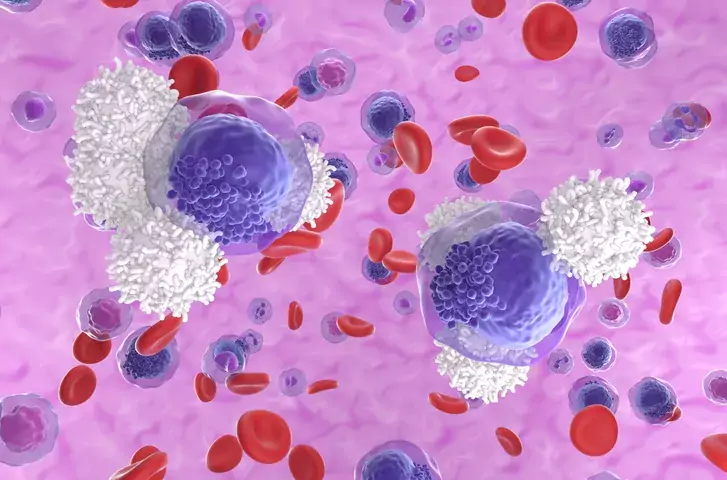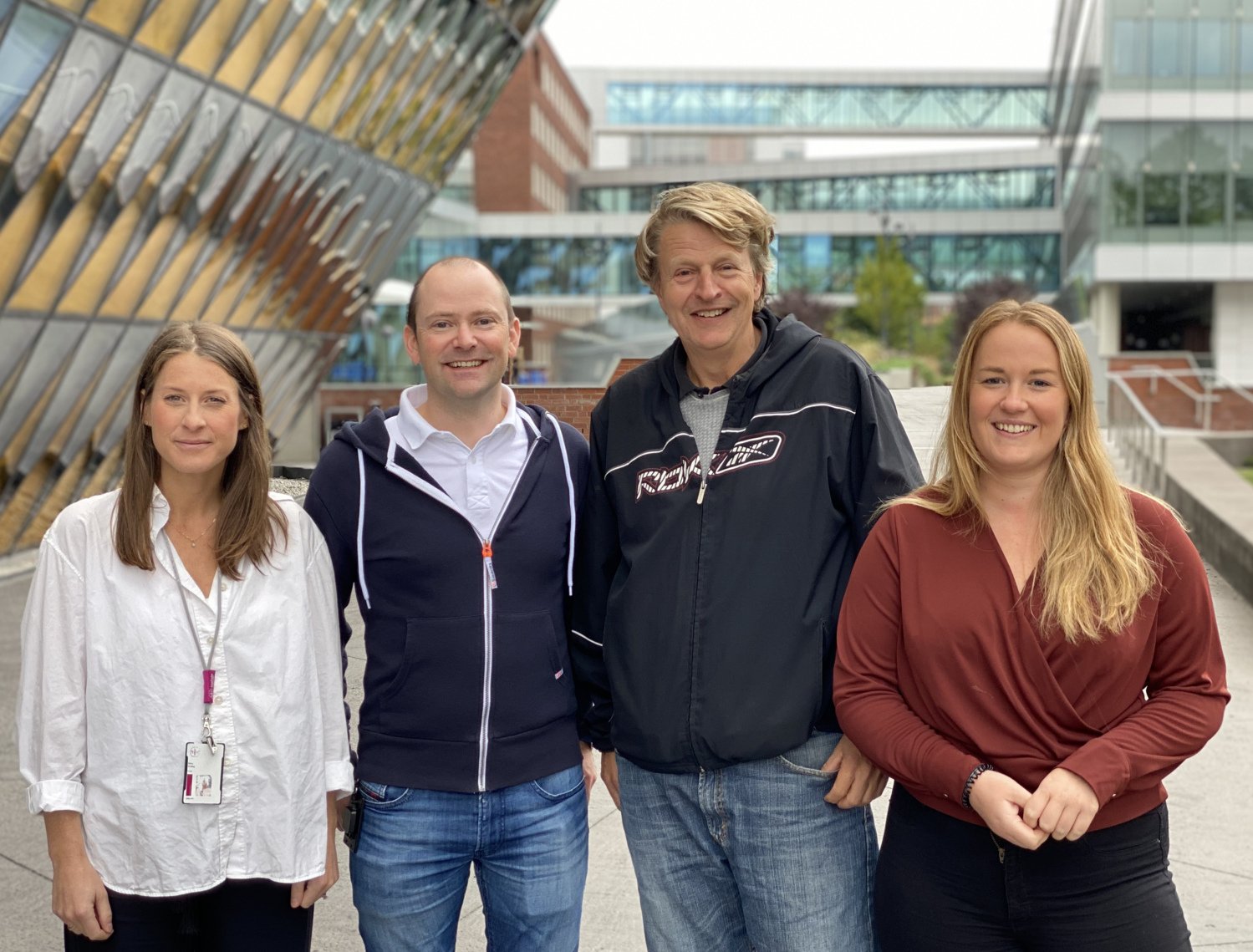Immunotherapy that eliminates mutated cancer cells shows promising effect

Researchers at Karolinska Institutet and the University of Oslo present a new type of immunotherapy that attacks cancer cells with a specific mutation. A study published in the journal Nature Cancer shows promising effects on patient cells in mice and offers hope for patients with acute myeloid leukaemia (AML), a cancer that has proven difficult to treat.

“It is important to find new effective treatments for AML, which has a high mortality rate and is the most common form of leukaemia among adults,” says Sten Eirik W. Jacobsen, professor at Karolinska Institutet and Karolinska University Hospital.
The study is based on recent advances in immunotherapy where patients’ cancer-driving mutations are used as targets for treatment. The problem with this type of treatment has so far been that most mutations are unique to individual patients and that the treatment must therefore be tailored to each patient. It is also common that some cancer cells do not express the mutation, making them resistant to the treatment. In addition, very few mutations can activate the immune system, which is necessary for successful immunotherapy.
However, some mutations are found in several patients and are of particular interest to use as treatment targets. One example is mutations in the FLT3 gene, which are common in AML and often contribute to the acceleration of the disease.
Collaboration with researchers in Oslo
Johanna Olweus’ research group at the University of Oslo (UiO) and Oslo University Hospital (OUS) in Norway has now succeeded in identifying a type of T cell in the immune system that recognises and kills cells with a specific mutation in the FLT3 gene. In collaboration with Petter Woll and Sten Eirik W. Jacobsen’s research groups at Karolinska Institutet in Sweden, the researchers have tested what effect these T cells have on AML cells from patients and how they affect healthy cells without the specific mutation.
The researchers used several models generated from more than one patient, where patient cells with the mutation were transplanted into mice that were then treated with the T cells. They were able to show that the T cells very quickly and effectively eliminated the cancer, without significantly affecting healthy non-mutated cells.
“An important finding was that these T cells also eliminated the cells that gave rise to the leukaemia, the so-called leukaemic stem cells,” says Madeleine Lehander, PhD student in Petter Woll’s research group at the Department of Medicine, Huddinge, Karolinska Institutet.
Attractive targets for T-cell therapy
The average five-year survival rate for AML is about 30 per cent with current treatments. There is no approved immunotherapy for AML, except for stem cell transplantation, which is a treatment with potentially life-threatening side effects.
“Our experimental studies show that mutations shared between patients may be attractive targets for future effective T-cell therapy for AML and potentially other cancers,” says Sten Eirik W. Jacobsen.
The work has been carried out in close collaboration between Olweus’ group at UiO/OUS, where the first author of the study, Eirini Giannakopoulou, has been the driving force, and Woll and Jacobsen’s groups at KI, where doctoral students Madeleine Lehander and Stina Virding Culleton have played central roles.
The research was mainly funded by the Swedish Research Council, the Knut and Alice Wallenberg Foundation, the Tobias Foundation, the Torsten Söderberg Foundation, the Research Council of Norway, the Norwegian Cancer Society, and the European Research Council. A patent application has been filed by Inven2 (UiO/OUS) protecting the T-cell receptor sequence where Johanna Olweus and Eirini Giannakopoulou are listed as inventors. Johanna Olweus is on the scientific advisory board of Asgard Therapeutics and is one of the founders of T-Rx Therapeutics. The other co-authors declare no potential conflicts of interest.
Publication
“A T cell receptor targeting a recurrent driver mutation in FLT3 mediates elimination of primary human acute myeloid leukemia in vivo”, Eirini Giannakopoulou, Madeleine Lehander, Stina Virding Culleton, Weiwen Yang, Yingqian Li, Terhi Karpanen, Tetsuichi Yoshizato, Even H Rustad, Morten Milek Nielsen, Ravi Chand Bollineni, Trung T Tran, Marina Delic-Sarac, Thea Johanne Gjerdingen, Karolos Douvlataniotis, Maarja Laos, Muhammad Ali, Amy Hillen, Stefania Mazzi, Desmond Wai Loon Chin, Adi Mehta, Jeppe Sejerø Holm, Amalie Kai Bentzen, Marie Bill, Marieke Griffioen, Tobias Gedde-Dahl, Sören Lehmann, Sten Eirik W Jacobsen, Petter S Woll, Johanna Olweus, Nature Cancer, online 2 October 2023, doi: 10.1038/s43018-023-00642-8.
